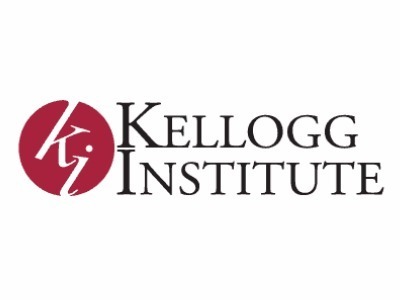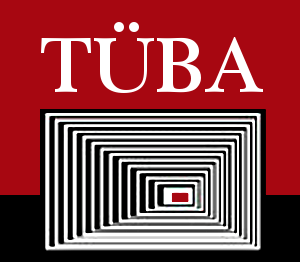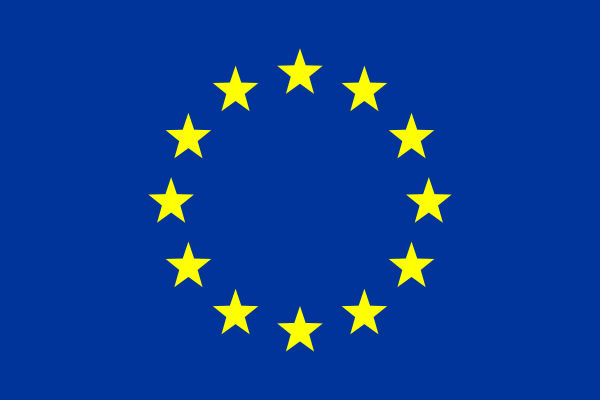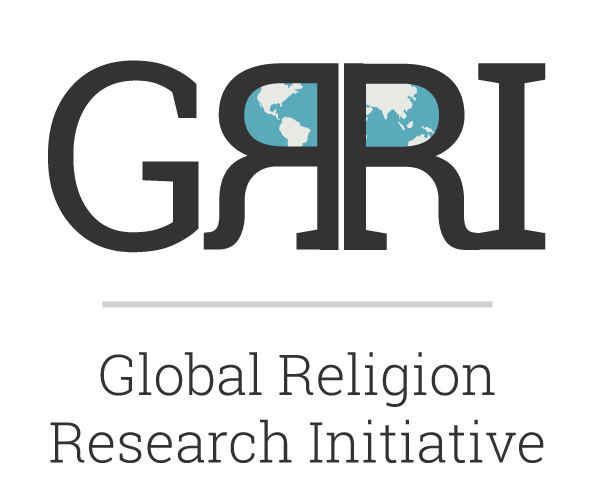 |
Project Title: Citizens for Sustainable Olive Oil Production (SOLIVEO) Supporting Institution: European Union - IMPETUS Accelerator Project Coordinator: Mehmet Fatih Aysan Team members: Assoc. Prof. Ümmügülsüm Aysan, Merve Taşcıoğulları Time: 2024-2025 The SOLIVEO project led by the Institute of Population and Social Research at Marmara University seeks to enhance sustainable olive oil production in Bozdoğan, Türkiye. By combining traditional farming knowledge with modern scientific techniques, the project aims to improve yields and quality while promoting environmental and economic resilience. Over seven months, local farmers and students will engage as citizen scientists in various activities such as soil composition analysis, pest monitoring, and organic farming practices. Workshops and field visits will document ancient production methods, identify strengths and weaknesses, and provide targeted training. The project focuses on empowering women and young farmers, fostering community engagement, and knowledge sharing. Key activities include stakeholder consultations, training programs, data collection, and public dissemination of results through a dedicated website and social media. The project aspires to influence agricultural policies and inspire similar initiatives globally, promoting sustainable agriculture and economic development in the region.
|
 |
Project Title: Not in Education, Employment, or Training (NEET) in Istanbul: Needs Analysis and Policy Recommendations of Young People Supporting Institution: Istanbul Chamber of Commerce Project Coordinator: Mehmet Fatih Aysan Team members: Assoc. Prof. Halim Baş, Assoc. Prof. Ümmügülsüm Aysan, Abdulnentor Musliu Time: 2024-2025 This project is being carried out by the Institute of Population and Social Research at Marmara University, to understand the needs of young people who are Neither in Education Nor in Employment Nor in Training (NEET) in Istanbul. The project team will investigate the reasons and possible consequences of the NEET. Based on the quantitative and qualitative data, this project will reveal the prevalence, reasons, consequences and policy needs of NEET youth between the ages of 18-29 in Istanbul. The project will provide a scientific basis for future research and potential policy interventions by addressing the challenges posed by NEET in Istanbul, which hosts the largest youth population in Türkiye.
|
 |
Project Title: The Relationship of Built Environments with Health Indicators and Quality of Life: A Community Participatory Model Proposal for Healthy Cities Supporting Institution: TÜBİTAK-1003 Researcher: Zübeyir Nişancı Year: 2020-2023 The main goals of this project are to identify the internal relations within and across built environments through analyzing the physical attributes of built environments, street network morphometrics and land use characteristics, population density, socio-economic characteristics of inhabitants, and various health indicators at different geographical scales (such as physical activity, obesity, and non-communicable chronic diseases (cardiovascular diseases, hypertension, diabetes, depression), and to generate an evidence-based study within the framework of a community participatory model and with an urban vision of high quality and satisfactory, healthy environments.
|
 |
Project Title: Exploring The Transformation of Turkish Urban Landscape Supporting Institution: TÜBİTAK-1001 Researcher: Zübeyir Nişancı Year: 2020-2023 The project explores the transformation of the urban landscape in Turkey, which has been rapidly changing since the 1980s with regard to the locations of higher educational institutions and occupational zones. This project investigates factors affecting the hierarchies and relationship types in the settlement system at the district level.
|
 |
Project Title: The Effect of Attitudes of the Family on Raising a Child and Formal Education on the Child's Academic, Cognitive and Social-Emotional Development Link: https://bilisselakademilab.com/kule/ Supporting Institution: TÜBİTAK-ARDEB-1003 Principle Invesitigator: Beyza Ateş Şen, Researcher: Ayşe Yetiş-Bayraktar Year: 2020-2023 This longitudinal project aims to investigate the short and long-term effects of the interactions between family and school on the academic-cognitive and social-emotional development of the child.
|
 |
Project Title: Tradeoffs Between Religion and Democracy: Survey Evidence from the Muslim World Supporting Institution: Kellogg Institute of International Affairs, University of Notre Dame Researchers: Michael Hoffman, Muhammet Tahir Kılavuz, Nathanael G. Sumaktoyo
|
 |
Project Title: Family in the Welfare State Link: http://www.tuba.gov.tr/tr/haberler/akademiden-haberler/2019-tuba-odulleri-sahiplerini-buldu Supporting Institution: TÜBA The Young Scientists Award Programme Principle Investigator: Mehmet Fatih Aysan Year: 2020-2022 This project examines the social policies implemented for the changing family in Turkey and the world. Welfare state applications for changing families will be examined through institutional statistics and open access resources in different welfare states. Project objectives can be summarized under two headings. First of all, social policy applications for the needs of changing families will be examined. Second, the role of the family in the distribution of welfare will be analyzed.
|
 |
Project Title: Türkiye Child Research Supporting Institution: Ministry of Family and Social Services Date: 30 June-18 August 2022 Under the coordination of the Ministry of Family and Social Services, "Türkiye Child Research" was carried out in İstanbul and Şanlıurfa between 30 June-7 July 2022. Within the scope of the research, it is aimed to reveal the child profile of Türkiye with questions to determine the conditions of 0-18 age group children in education, health, housing, environment, culture, and many similar fields. The aim is to use the data obtained from the research to develop policies and services for children.
|
 |
Project Title: Migration and Social Policies in Turkey and the UK Supporting Institution: British Council-Research Environment Links Principle Invesitigator: Mehmet Fatih Aysan & Ayşe Güveli Year: 2020-2021 This project aims to bring together research groups to develop long-term strategic research collaborations in the domains of migration and social policies. The workshops, field trips, and lectures proposed in the project will promote the international exchange of knowledge and experiences around novel approaches, strategies, and methods in the adaptation and integration of immigrants and their well-being in Turkey and the UK. It also intends to train graduate students and early career scholars to publish and disseminate their academic findings in leading international scientific journals. It also aims to improve partner countries’ social welfare and economic development.
|
 |
Project Title: Refugee Emergency: Defining and Implementing Novel Evidence-based psychosocial interventions (RE-DEFINE) Link: http://re-defineproject.eu/ Supporting Institution: European Union (Horizon 2020) – World Health Organization (WHO) Principle Invesitigator: Zübeyir Nişancı Year: 2019-2020 This project analyzes the roles of four main welfare institutions—namely the state, the family, the market, and the local actors in the distribution of welfare shaped by the intersections of age, class, gender, and ethnicity relations in Turkey. This study depends on mixed data collection methods. The distribution of welfare by different institutions and the perceptions of citizens about social policies were examined through 6 focus-groups and 84 semi-structured interviews between May 2015 and April 2016. The roles of the welfare institutions on welfare distribution were analyzed through advanced statistical methods by conducting a survey with 1630 people from all over the country.
|
 |
Project Title: Do Tolerance and Pragmatism Have a Price? Supporting Institution: Global Religion Research Initiative Principle Invesitigator: Muhammet Tahir Kılavuz Year: 2017-2020 This project covers multiple issues that are about religion and politics. The core of the project focuses on citizens’ responses toward a policy trade-off between religious ideals and economic pragmatism. The rest of the project looked at issues such as corruption, support for democracy, and support for Islamist policies through multiple surveys in Tunisia, Egypt, and Morocco and produced multiple manuscripts.
|
 |
Project Title: Institutions and Individuals in the Distribution of Welfare in Europe Link: https://cordis.europa.eu/project/id/618792 Supporting Institution: EU 7th Framework Programme Marie Curie Actions Career Integration Grant Principle Investigator: Mehmet Fatih Aysan Year: 2013-2017 This project aims to develop a new approach in welfare state studies using new conceptualization and state-of-the-art statistical techniques. The roles of four main welfare institutions-namely the state, the family, the market, and local actors in the distribution of welfare were analyzed by the intersections of age, class, gender, and race relations in Europe. There are three main focuses of this research. First, this project aimed to develop a new approach in welfare state and social policy studies to understand the distribution of welfare that is shaped by the intersections of age, class, gender, and race relations. Second, by comparing different societies, it was aimed to analyze future social, economic, and demographic challenges to welfare regimes, particularly with reference to social inequalities. Third, it re-examined the welfare regime typology and the question of path dependency of welfare policies.
|
 |
Project Title: Pursuing a Mirage: Authoritarian Persistence and Regime Change in the Arab Middle East and North Africa Supporting Institution: Kellogg Institute of International Affairs, University of Notre Dame Principle Invesitigator: Muhammet Tahir Kılavuz The Arab world constitutes one of the most authoritarian regions in the world. Yet, regime change is not absent in the region. This project aims to understand the causes of the persistence of authoritarianism in the region and explores why democratization is attainable in some cases but not in others. This grant supported 10-month fieldwork in Algeria, Tunisia, and Turkey.
|
|
|
|
 |
Project Title: Understanding the Welfare Regime of Turkey: Institutions and Individuals Link: https://app.trdizin.gov.tr/proje/TVRjMU1ERXg/turkiye-nin-refah-rejimini-anlamak-kurumlar-ve-bireyler Supporting Institution: TÜBİTAK 3501 Principle Investigator: Mehmet Fatih Aysan Year: 2014-2017 This project aims to analyze the roles of four main welfare institutions-namely the state, the family, the market, and local actors in the distribution of welfare shaped by the intersections of age, class, gender, and ethnicity relations in Turkey. This study depends on mixed data collection methods. Having 6 focus groups and 84 semi-structured interviews between May 2015 and April 2016, the distribution of welfare by different institutions and the perception of citizens about social policies were examined. After conducting a survey with 1630 people from all over the country, the roles of the welfare institutions on welfare distribution were analyzed through advanced statistical methods.
|
This page updated by Nüfus ve Sosyal Politikalar Uygulama ve Araştırma Merkezi on 17.02.2025 13:38:53
